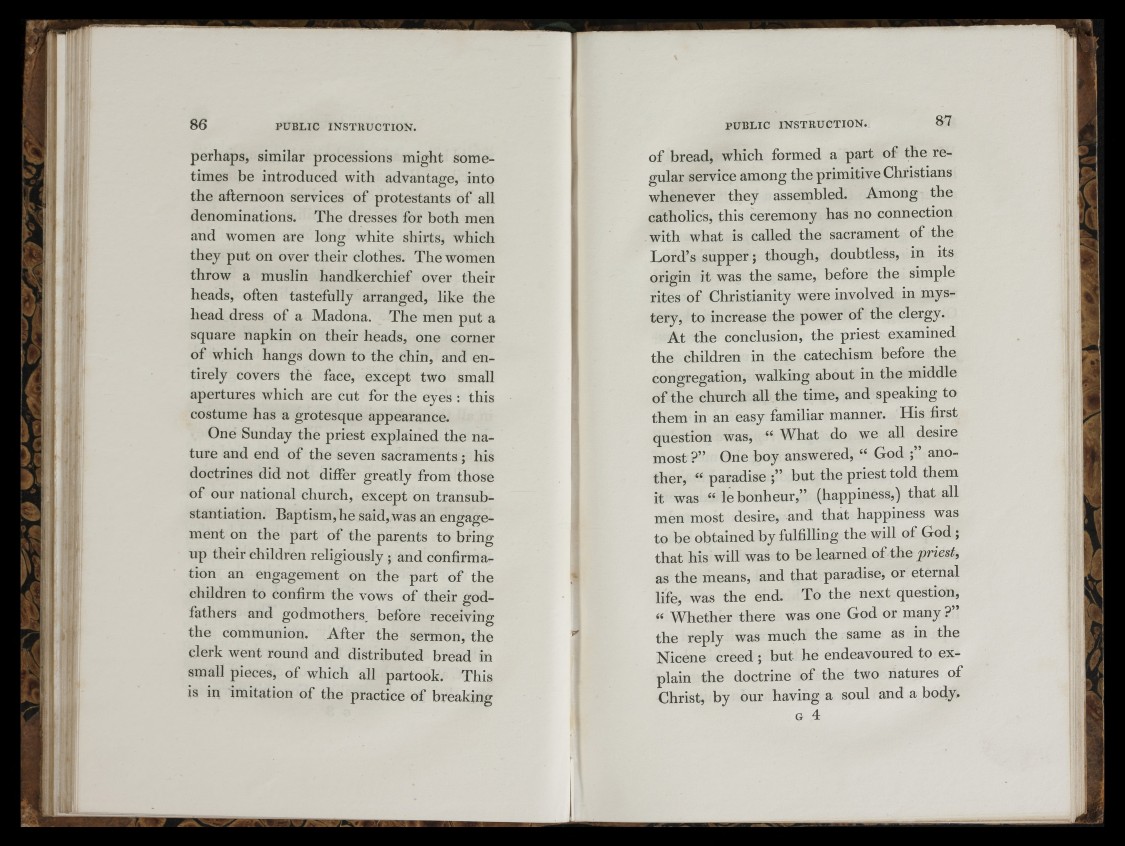
If
'i
perhaps, similar processions might sometimes
be introduced with advantage, into
the afternoon services of protestants of all
denominations. The dresses for both men
and women are long white shirts, which
they put on over their clothes. The women
throw a muslin handkerchief over their
heads, often tastefully arranged, like the
head dress of a Madona. The men put a
square napkin on their heads, one corner
of which hangs down to the chin, and entirely
covers the face, except two small
apertures which are cut for the eyes ; this
costume has a grotesque appearance.
One Sunday the priest explained the nature
and end of the seven sacraments ; his
doctrines did not differ greatly from those
of our national church, except on transub-
stantiation. Baptism, he said, was an engagement
on the part of the parents to bring
up their children religiously ; and confirmation
an engagement on the part of the
children to confirm the vows of their godfathers
and godmothers before receiving
the communion. After the sermon, the
clerk went round and distributed bread in
small pieces, of which all partook. This
is in imitation of the practice of breaking
I; ", ’(.it
of bread, which formed a part of the regular
service among the primitive Christians
whenever they assembled. Among the
catholics, this ceremony has no connection
with what is called the sacrament of the
Lord’s supper; though, doubtless, in its
origin it was the same, before the simple
rites of Christianity were involved in mystery,
to increase the power of the clergy.
At the conclusion, the priest examined
the children in the catechism before the
congregation, walking about in the middle
o fth e church all the time, and speaking to
them in an easy familiar manner. His first
question was, “ What do we all desire
most ?” One boy answered, “ God ;” another,
“ paradise ;” but the priest told them
it was “ lebonheur,” (happiness,) that all
men most desire, and that happiness was
to be obtained by fulfilling the will of God ;
that his will was to be learned of the priest,
as the means, and that paradise, or eternal
life, was the end. To the next question,
“ Whether there was one God or many ?”
the reply was much the same as in the
Nicene creed ; but he endeavoured to explain
the doctrine of the two natures of
Christ, by our having a soul and a body.
G 4
k.: